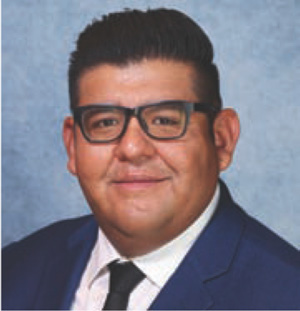
Economists and investors alike may have differing opinions and forecasts, but they all share a love for a good chart—two points in time with a steadily upward-trending line between them is all too rare to find, hence the ever-growing appetite for researchers, brokers and pundits.
One of the best examples of this sustained success is the U.S. tribal gaming industry, which has experienced meteoric growth since the enactment of the Indian Gaming Regulatory Act (IGRA) in October 1988. The subsequent 35 years since IGRA’s passage—which, for context, would still firmly classify the industry as a millennial—have been defined largely by prudent business decisions, which is to be expected from sovereign nations making investments for the good of their people rather than the price of their stock.
According to the most recent figures from the National Indian Gaming Commission (NIGC), Indian gaming generated $40.9 billion in gross revenue in fiscal year 2022 across the U.S., an all-time record and a 4.9 percent increase over the previous record of $39 billion from 2021. Impressively, those back-to-back highs directly followed the Covid-impacted total of $27.8 billion from 2020, which was the lowest year-end figure since 2012, per Statista. Aside from pretty charts, this level of resilience is also universally beloved by the financial intelligentsia.
The number of tribal operators has grown tremendously over the years, with more petitioning for federal recognition every year. Per the NIGC, there are currently more than 200 recognized tribes with gaming operations, across a total of 29 states.
Thus, as with any maturing industry, there is now an impetus on tribes to diversify their holdings in the name of long-term sustainability, which has always been a hallmark of the tribal decision-making process.
Playing the Board

James Siva, Chairman, California Nations Indian Gaming Association; Vice Chairman, Morongo Band of Mission Indians
The economic foundation built by successful land-based gaming has given many tribes a favorable bankroll with which they can now get a little creative and explore new opportunities. According to James Siva, chairman of the California Nations Indian Gaming Association (CNIGA) and vice chairman of the Morongo Band of Mission Indians, one such avenue that has become increasingly attractive is the energy project that can limit tribes’ dependency on traditional infrastructure while also providing steady streams of income.
Siva explains that his tribe has successfully taken its flagship Morongo Casino Resort & Spa off the grid with the help of “a cogeneration plant, which provides all of the power needs for our casino as well as some of our surrounding businesses.” Not only that, but the real prize is the tribe’s new LLC, Morongo Transmission, an energy initiative that is a joint partnership with Southern California Edison.
“We became the first tribe, not just in California but in the nation, to actually be able to collect the utility fees, the transmission fees for the lines that go across our homelands here,” he notes. “It was a landmark deal that really guaranteed some long-term revenue for our community members and our tribal citizens that will go beyond gaming. These partnerships—one’s 30 years, one’s 50 years— are guaranteed revenue that’s going to continue to support our government services that we provide our members.”
In addition to Morongo, Siva notes that other gaming tribes in the area have made similar non-gaming investments in recent years. Last June, Northern California’s Paskenta Band of Nomlaki Indians announced plans to build a state-of-the-art 20-megawatt-hour storage microgrid coupled with a 5-megawatt solar array, which represents one of the world’s largest zinc-based battery projects. The project received a healthy $32.75 million grant from the California Energy Commission (CEC), through its Long Duration Storage Program (LDSP) that incentivizes non-lithium energy developments.
Before that, in late 2022, the CEC also awarded a $31 million grant to the Viejas Band of Kumeyaay Indians through the LDSP for a 60-megawatt-hour long-duration battery storage facility near Alpine, California. And in early March of this year, the Viejas Band also received a conditional loan commitment of up to $72.8 million from the U.S.
Department of Energy’s Loan Programs Office for the construction of the Viejas Microgrid project, a 15-megawatt photovoltaic solar generation system and an additional 38-megawatt-hour long-duration storage system.
Such projects serve to lessen costs of existing operations while providing steady streams of passive income, an enviable business model that analysts love to salivate over.

Kit Szybala, Founding Partner and Managing Director, GMA Consulting
“We’re seeing tribes start to pursue acquisition, ownership and management of those opportunities outside of their core market area, with industries that provide passive levels of income that are a bit more risk averse,” explains Kit Szybala, founding partner and managing director of GMA Consulting.
Szybala notes that for tribes, the most ideal diversification opportunities are those that can be “leveraged and potentially have an M&A opportunity,” or in other words, “something that they can improve upon, bundle up and sell.” In addition to energy, he also points to oil and gas, agriculture and storage as attractive avenues to suit these attributes—not exactly as attractive and flashy as gaming, but just as profitable.
Coincidentally, Siva and the Morongo Band are leading on this front as well—the tribe operates “two of the largest travel centers in California,” running a total of 80 pumps “right off one of the busiest highways in California and in the country, the I-10.”
It should also be noted that in literal terms, casino resorts are also world-class hospitality and entertainment venues which provide a bevy of high-level experience that can be applied to non-gaming hotels and other similar investment properties, especially in commercial jurisdictions with limited gaming opportunities.
“We’re getting into that phase of time where (tribes are) looking beyond the traditional casino and hospitality components of a program and saying, ‘Hey, do we also want to be a major player in the traditional entertainment space, with concert venues, hosting major comedic acts?’ That has always been a part of the story, but now, several tribes are thinking about making some marquee investments and building great venues for that outside of the core casino product,” Szybala notes.
Regardless of the venture, the humble mentality that has made tribes successful in gaming can always be applied to new opportunities—and of course, the extra cash reserves don’t hurt either.
“I think the intention of tribes is always to do anything well, but also not to skip any steps,” Siva says. “We’re willing to make some mistakes along the way so that we can learn how to do things right. I think that kind of humble approach lends itself to any industry.”
Doubling Down and Laying Odds
Three-plus decades in land-based gaming have done well to build a foundation for tribal operators, but the industry has grown and evolved tremendously over that span, which presents new business opportunities, namely in iGaming and sports betting as gaming continues to expand.

Seth Young, Chief Operating Officer, FSG Digital; Founding Partner, GMA Consulting
According to Seth Young, fellow GMA founding partner and chief operating officer of FSG Digital, the onset of digital gaming and betting has become an interesting proposition in Indian Country, and “you’re seeing tribes really start to consider the online gaming opportunity in a more serious way” than ever before.
“When tribes are making generational decisions, it’s a bit different than the quarter-by-quarter approach that a lot of the publicly traded companies have to take because of the nuance of the market,” he adds. “I think that’s fascinating because it helps inform different kinds of potential market structures that might govern the overarching regulation of online casino, online sports betting. But it is important that any tribe does understand online gaming as best as they can when gaming is the lifeblood of infrastructure, education, support services and government in many places.”
When choosing a path to pursue, various options present themselves that also come with important questions attached, and one of the unique traits of tribal gaming is the fact that each tribe has its own voice and preferences. As Young notes, each group must decide if they want to be B2C operators, B2B suppliers, investors, owners or sub-licensers. In some cases, regulatory hurdles limit those options, but even so, there have been examples of innovative and successful investments in new verticals.
In November 2022, Boyd Gaming completed its acquisition of Pala Interactive, a North America-focused iGaming software provider that was owned and founded by the Pala Band of Mission Indians, for a total consideration of $170 million. At last year’s Global Gaming Expo, the Poarch Band of Creek Indians’ Casinoverse fantasy gaming app took home the gold medal for Best iGaming Product in GGB’s annual Gaming & Technology Awards.
More recently, the Seminole Tribe unleashed mobile sports betting in Florida via Hard Rock Bet last December after many months of legal challenges from parimutuel operators in the state—its hub-and-spoke model, which posits that bets placed outside of tribal lands are processed via tribal servers, are still compliant under IGRA, and could potentially spread to other jurisdictions if ultimately upheld.
California’s Chicken Ranch Tribe of Me-Wuk Indians also showcased some ingenuity with its launch of PlaySqor in late February, a mobile, on-premise sports betting product built on Class II math developed in partnership with Vetnos. Rather than traditional Class III sports betting platforms that offer various bets on outcomes of games, props, futures, etc., PlaySqor mirrors daily fantasy pick’em contests where bettors must pick who will have the better performance between two individual athletes.
A total of nine matchups are then placed in a tic-tac-toe style board, with the payouts varying based on correct picks and their placement on the grid. A complete board with correct picks and placement would garner a max payout of 32-to-1. The platform can be licensed out and branded to each individual tribe, and could potentially be the only game in town for several years, given that commercial bookmakers will likely not make another push at statewide legalization until 2026 at the earliest.
For Young, new online products like PlaySqor represent “fascinating new innovation,” but such developments should be viewed as a necessity, not a luxury.
“So many things can happen, but the upshot here is that tribes that are not considering what online gaming will look like for them may have an issue in the future when all of the commercial gaming interests continue to push and push and push,” he asserts. “We’ve seen Michigan come up with an interesting market structure to blend tribal and commercial. Same with Arizona. I think it’s a matter of when, not if. So it is quite important to consider these initiatives as part of your growth plans.”
The high level of saturation in the U.S. gaming market as a whole also makes international expansion an attractive option for the first time ever; perhaps the chief example of recent intrigue is the Mohegan Tribe’s opening of its Inspire integrated resort in Incheon, South Korea in early March. In addition to gaming, the property’s amenities include a multi-purpose arena with a capacity of 15,000, MICE facilities complete with the largest ballroom in the country, and a litany of luxury dining and retail offerings.
Full-scale projects like these, Szybala argues, are a reminder that tribal operators are now fully on the level of their commercial cohorts, with the resources and expertise to secure big victories.
“You name any major market, and I can assure you that a tribe is going to be pursuing it just as every commercial operator’s going to pursue the major markets,” he contends. “That’s where some of these tribal gaming corporations are in terms of their size and pedigree. They’re willing to go to bat against the big commercial operators, as they should be.”
Since the very onset of the industry, the goal of establishing and ultimately diversifying business ventures has been secondary to maintaining tribal sovereignty, and that will continue to be true regardless of fads or emerging trends. This of course is nothing new to tribes who have faced this pressure for countless generations, but the emergence and evolution of gaming has changed the game, and in many ways leveled the playing field. The U.S.—and increasingly, the world—is their economic oyster, and onlookers will be all too curious to see where they choose to invest next.
“We are very much focused on being good community partners and having that positive view of our industry,” Siva says. “As we look forward to the expansion of gaming, at the end of the day, it will be about defending our sovereignty, and tribes will be willing and are willing, and in the future we’ll continue to fight in any way we need to defend that.”


















